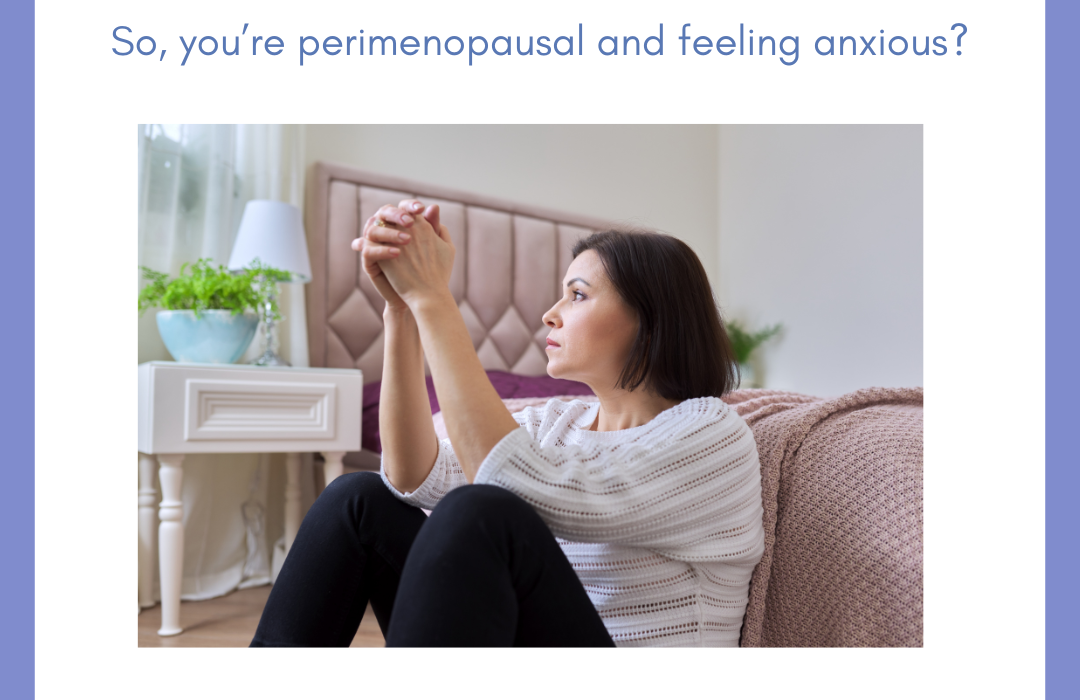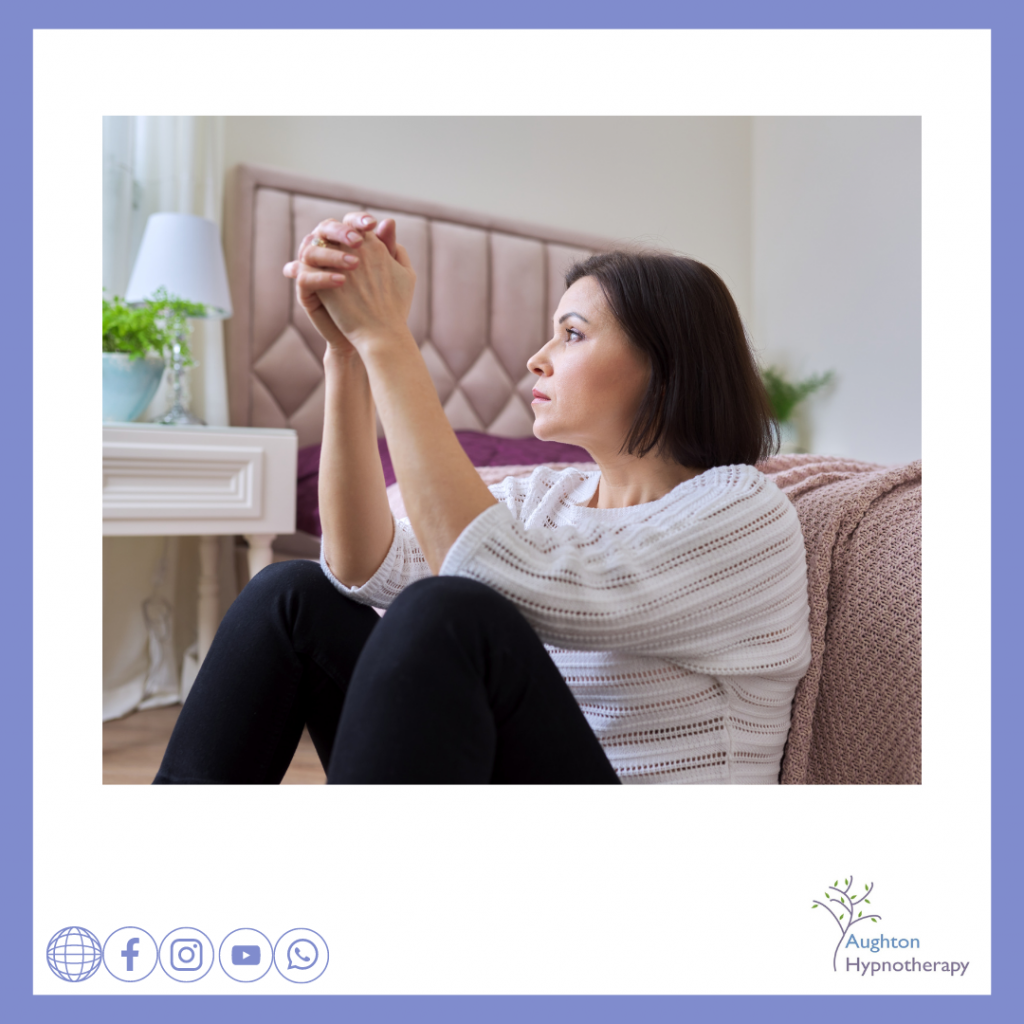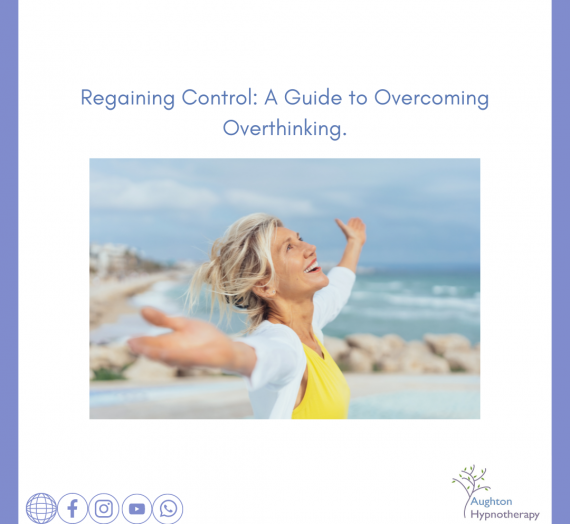So, You’re Perimenopausal and feeling anxious? Welcome to the club! Perimenopause is a time of change for women, and anxiety is a common symptom. It’s important to remember that you’re not alone, and there are things you can do to manage your anxiety.
What is perimenopause?
Perimenopause is the time leading up to menopause when a woman’s menstrual cycle starts to change. It can last for several years and is a time of hormonal fluctuation. Estrogen and progesterone levels start to decline, and this can lead to a variety of symptoms, including:
- Hot flushes
- Night sweats
- Disturbed sleep patterns
- Irregular periods
- Fatigue
- Mood swings
- Vaginal dryness
- Painful sex
- Weight gain
- Difficulty concentrating
- Memory problems
- Irritability
- Anxiety
What’s the connection between perimenopause and anxiety?
The connection between perimenopause and anxiety is not fully understood, but it’s thought to be related to hormonal changes during this time. Oestrogen plays a role in regulating mood, and when levels of oestrogen decline, it can lead to increased anxiety. Additionally, the physical symptoms of perimenopause, such as hot flushes, brain fog, and broken sleep, can also contribute to anxiety.
What are the symptoms of perimenopausal anxiety?
The symptoms of perimenopausal anxiety can vary from woman to woman, but they may include:
- Restlessness
- Irritability
- Racing thoughts
- Difficulty concentrating
- Increased sensitivity to stress
- Panic attacks
- Feeling like you’re going crazy
How can I manage perimenopausal anxiety?
There are several things you can do to manage perimenopausal anxiety, including:
- Talking to your doctor can help you rule out any underlying medical conditions and develop the right treatment plan.
- Lifestyle changes like regular exercise, meditation, reduced workload and a healthy diet can help reduce anxiety symptoms.
- Consider hormonal therapy may help manage anxiety symptoms. However, it’s important to talk to your doctor about the risks and benefits of hormonal therapy before starting treatment.
- If you’re struggling to manage your anxiety, consider seeking professional support from a therapist or counsellor. There is evidence that hypnotherapy can help with perimenopausal anxiety. In one study, women who received hypnotherapy for perimenopausal anxiety reported a significant decrease in anxiety symptoms compared to women who received a placebo treatment.
Remember, you’re not alone!
Perimenopause is a common experience, and anxiety is a common symptom. There are many things you can do to manage your anxiety and live a full and happy life.
Here are some additional tips for managing perimenopausal anxiety:
- Get enough sleep. When well-rested, you’re better able to cope with stress and anxiety.
- Eat a healthy diet. Eating a balanced diet can help to improve your overall mood and well-being.
- Exercise regularly. Exercise is a great way to reduce stress and anxiety, and it can also help to improve your sleep.
- Avoid caffeine and alcohol. Caffeine and alcohol can worsen anxiety symptoms.
- Find healthy ways to relax. Find activities that help you relax and de-stress, such as yoga, meditation, or time in nature.
- Talk to someone you trust. Talking to a friend, family member, or therapist can help you to feel less alone and more supported.
Hypnotherapy can help with perimenopausal anxiety in several ways. It can help you to sleep better, increase your relaxation, boost your mood, increase your self-esteem and confidence, help you to develop coping mechanisms and reduce your overall stress and anxiety.
Hypnotherapy is a safe and effective treatment for perimenopausal anxiety. Hypnotherapy may be a good option if you are struggling with anxiety.
If you would like more information about how I can help you, please get in touch:






